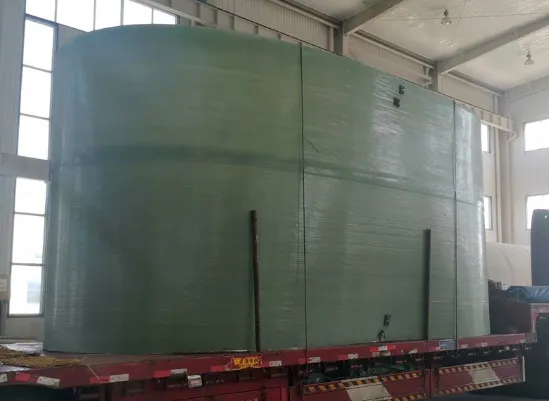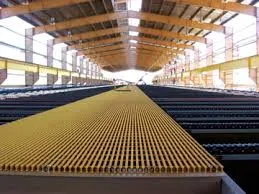
-
 Afrikaans
Afrikaans -
 Albanian
Albanian -
 Amharic
Amharic -
 Arabic
Arabic -
 Armenian
Armenian -
 Azerbaijani
Azerbaijani -
 Basque
Basque -
 Belarusian
Belarusian -
 Bengali
Bengali -
 Bosnian
Bosnian -
 Bulgarian
Bulgarian -
 Catalan
Catalan -
 Cebuano
Cebuano -
 China
China -
 China (Taiwan)
China (Taiwan) -
 Corsican
Corsican -
 Croatian
Croatian -
 Czech
Czech -
 Danish
Danish -
 Dutch
Dutch -
 English
English -
 Esperanto
Esperanto -
 Estonian
Estonian -
 Finnish
Finnish -
 French
French -
 Frisian
Frisian -
 Galician
Galician -
 Georgian
Georgian -
 German
German -
 Greek
Greek -
 Gujarati
Gujarati -
 Haitian Creole
Haitian Creole -
 hausa
hausa -
 hawaiian
hawaiian -
 Hebrew
Hebrew -
 Hindi
Hindi -
 Miao
Miao -
 Hungarian
Hungarian -
 Icelandic
Icelandic -
 igbo
igbo -
 Indonesian
Indonesian -
 irish
irish -
 Italian
Italian -
 Japanese
Japanese -
 Javanese
Javanese -
 Kannada
Kannada -
 kazakh
kazakh -
 Khmer
Khmer -
 Rwandese
Rwandese -
 Korean
Korean -
 Kurdish
Kurdish -
 Kyrgyz
Kyrgyz -
 Lao
Lao -
 Latin
Latin -
 Latvian
Latvian -
 Lithuanian
Lithuanian -
 Luxembourgish
Luxembourgish -
 Macedonian
Macedonian -
 Malgashi
Malgashi -
 Malay
Malay -
 Malayalam
Malayalam -
 Maltese
Maltese -
 Maori
Maori -
 Marathi
Marathi -
 Mongolian
Mongolian -
 Myanmar
Myanmar -
 Nepali
Nepali -
 Norwegian
Norwegian -
 Norwegian
Norwegian -
 Occitan
Occitan -
 Pashto
Pashto -
 Persian
Persian -
 Polish
Polish -
 Portuguese
Portuguese -
 Punjabi
Punjabi -
 Romanian
Romanian -
 Russian
Russian -
 Samoan
Samoan -
 Scottish Gaelic
Scottish Gaelic -
 Serbian
Serbian -
 Sesotho
Sesotho -
 Shona
Shona -
 Sindhi
Sindhi -
 Sinhala
Sinhala -
 Slovak
Slovak -
 Slovenian
Slovenian -
 Somali
Somali -
 Spanish
Spanish -
 Sundanese
Sundanese -
 Swahili
Swahili -
 Swedish
Swedish -
 Tagalog
Tagalog -
 Tajik
Tajik -
 Tamil
Tamil -
 Tatar
Tatar -
 Telugu
Telugu -
 Thai
Thai -
 Turkish
Turkish -
 Turkmen
Turkmen -
 Ukrainian
Ukrainian -
 Urdu
Urdu -
 Uighur
Uighur -
 Uzbek
Uzbek -
 Vietnamese
Vietnamese -
 Welsh
Welsh -
 Bantu
Bantu -
 Yiddish
Yiddish -
 Yoruba
Yoruba -
 Zulu
Zulu
Jan . 30, 2025 05:33
Back to list
Covers
Fiberglass scrubbers have long stood as silent workhorses in numerous industries, addressing a myriad of air pollution challenges. With a composition that uniquely combines lightweight properties with formidable strength and corrosion resistance, fiberglass scrubbers are indispensable in environments demanding high levels of air purity and stringent emission controls.
Trustworthiness represents a cornerstone attribute for any industrial equipment, and fiberglass scrubbers exemplify it through their dependable operation and extended service life. Unlike other materials that succumb to harsh environmental conditions, fiberglass demonstrates unparalleled durability, resisting not just chemical but also thermal fluctuations. This reliability translates to fewer unexpected downtimes, rendering them a trusted component in critical operations such as chemical manufacturing, waste management, and metal processing facilities. Furthermore, advancing technologies in composite materials herald a new era for fiberglass scrubbers. Innovations focusing on improving mechanical properties, enhancing thermal resistance, and reducing fabrication costs continue to surface, expanding their applicability and efficiency. Industry research continues to drive these innovations, striving to perfect scrubber designs that maximize pollutant capture while minimizing operational footprints. Fiberglass scrubbers, thus, remain at the forefront of essential air purification technology, bolstering both environmental and operational agendas across various industries. Tailored to accommodate specific industrial needs, they have garnered the confidence of engineers, environmentalists, and business leaders alike. Their continued evolution will undoubtedly further cement their role as indispensable tools in the global effort to curb air pollution and foster sustainable industrial practices. By committing to using fiberglass scrubbers, industries not only ensure compliance and operational excellence but also contribute meaningfully to environmental stewardship, marrying profitability with ecological responsibility.


Trustworthiness represents a cornerstone attribute for any industrial equipment, and fiberglass scrubbers exemplify it through their dependable operation and extended service life. Unlike other materials that succumb to harsh environmental conditions, fiberglass demonstrates unparalleled durability, resisting not just chemical but also thermal fluctuations. This reliability translates to fewer unexpected downtimes, rendering them a trusted component in critical operations such as chemical manufacturing, waste management, and metal processing facilities. Furthermore, advancing technologies in composite materials herald a new era for fiberglass scrubbers. Innovations focusing on improving mechanical properties, enhancing thermal resistance, and reducing fabrication costs continue to surface, expanding their applicability and efficiency. Industry research continues to drive these innovations, striving to perfect scrubber designs that maximize pollutant capture while minimizing operational footprints. Fiberglass scrubbers, thus, remain at the forefront of essential air purification technology, bolstering both environmental and operational agendas across various industries. Tailored to accommodate specific industrial needs, they have garnered the confidence of engineers, environmentalists, and business leaders alike. Their continued evolution will undoubtedly further cement their role as indispensable tools in the global effort to curb air pollution and foster sustainable industrial practices. By committing to using fiberglass scrubbers, industries not only ensure compliance and operational excellence but also contribute meaningfully to environmental stewardship, marrying profitability with ecological responsibility.
Next:
Related Products









